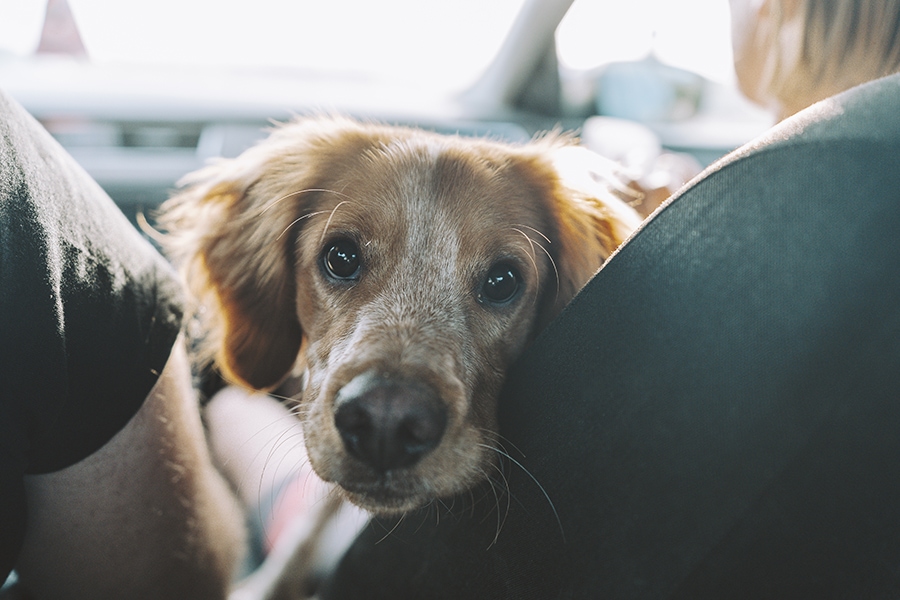Florida Hurricane Preparedness Guide
Considering moving to Southwest Florida? Or maybe you’re a Florida native on track to becoming a first-time homebuyer? Either way, recent news likely has one thing on your mind: hurricanes. Each year, June 1st through November 30th mark the start and end of the Atlantic hurricane season. Hurricane season can be a tense time for any Florida resident, but it’s especially stressful for home and property owners. You want to ensure the safety of your family and your investments, and we want to help. That’s where our Hurricane Preparedness Guide comes in!
As born-and-raised Floridians, Drew and Chanel Josephson (the founders of Naples Relocation Experts) genuinely understand the importance of hurricane preparedness. Our team is full of Southwest Florida natives and longtime residents who’ve navigated through big name storms like Hurricane Charley, Wilma, Irma, and now Ian. We want to use our experience and expertise to provide you with the tools and resources you need to feel safe and prepared.
Check out our Hurricane Preparedness Guide below to learn essential tips and tricks to weather any storm.
Know your hurricane terminology.

To understand what to expect, you should know these common terms:
- Tropical Storm: A tropical cyclone with maximum sustained winds of 39 to 73 mph. Tropical cyclones become a hurricane when they reach 74 mph winds.
- Tropical Storm / Hurricane Watch: Watches are issued 48 hours in advance and indicate that a tropical storm or hurricane is possible in the area.
- Tropical Storm / Hurricane Warning: Warnings are issued 36 hours in advance and mean that a tropical storm or hurricane is expected in the area.
- Eye: Clear center of the storm with calmer conditions.
- Eye Wall: Surrounding the eye, contains some of the most severe weather of the storm with the highest wind speed and largest precipitation.
- Rain Bands: Bands coming off the cyclone that produce severe weather conditions such as heavy rain, wind, and tornadoes.
- Storm Surge: A rising of the sea as a result of atmospheric pressure changes and wind associated with a storm.
Understand what the different hurricane categories mean.
The Saffir-Simpson Hurricane Wind Scale is used to determine the category of a hurricane based on wind speed. Knowing what category of hurricane is expected will help you determine the level of damage that could occur in your area. Hurricanes reaching Category 3 and higher are considered major hurricanes because of their potential for significant loss of life and damage. Category 1 and 2 storms are still dangerous, however, and require preventative measures.
- Category 1: 74-95 mph winds / Dangerous winds will produce some damage.
- Category 2: 96-110 mph winds / Extremely dangerous winds will cause extensive damage.
- Category 3: 111-129 mph winds / Devastating damage will occur.
- Category 4: 130-156 mph winds / Catastrophic damage will occur.
- Category 5: 157+ mph winds / Catastrophic damage will occur.
Bookmark The National Hurricane Center website.
The National Hurricane Center has the most up-to-date information on tropical cyclone developments, forecasts and weather alerts, discussions analyzing the data, and more. Bookmark the webpage http://www.nhc.noaa.gov/ and check it frequently for accurate updates on the hurricane’s path and severity.
Know what evacuation zone your home or property is in.
This is an important item in any hurricane preparedness guide! Properties are categorized into evacuation zones based on how prone to flooding they are. In the days or hours leading up to a hurricane, local officials will issue evacuation orders based on what zone you’re in. Typically, Zone A is the most vulnerable and the most likely to evacuate first, and Zone E is most likely to evacuate last. It’s important to know your property’s specific zone as it might be different from your neighbor’s. Your zone designation can also change, so make sure to check your zone annually. You can find your zone using the Florida Division of Emergency Management’s Know Your Zone map.
Have an evacuation plan in place.
Storm conditions and proximity can change in the hours leading up to a hurricane. Even if you initially choose to shelter in place, have an evacuation plan ready in case of an evacuation order. Your plan should include:
- Information on nearby shelters (Check out Florida Division of Emergency Management’s Shelter Information Index)
- Family meeting spots in case you are separated (choose a nearby location and an out-of-town location)
- A designated out-of-state friend or family member to contact and provide with updates
- Alternate evacuation routes in case of flooding, downed trees, or washed-out bridges
- A well-stocked car with items like blankets, road maps, toilet paper, jumper cables, or a towline
Remember to plan for your pets.

Don’t forget about your furry family members! When preparing for a hurricane, remember to do the following for your pets:
- Purchase collars for your pets with all of your contact information and, if possible, microchip your pets
- Pack a pet supply bag with sturdy leashes and/or carriers, food and water (at least 3 days), medical records, and any medications
- Research ahead of time to find a pet-friendly shelter or locate a friend, family member, or boarding facility that can safely house your pets
- Most pet-friendly shelters will require up-to-date veterinary vaccination records, so have these printed out and on hand
- Keep in mind that some hotels will waive pet fees or policies during hurricanes to allow your pets to travel with you
- Contact your local emergency management office, animal shelter, or animal control office to get additional advice and information if you’re unsure how to care for your pet in case of an emergency
Pack a hurricane supply kit.
As any hurricane preparedness guide will tell you, it’s essential to pack a supply kit ahead of time. Local stores can be chaotic and/or run out of stock the closer to the hurricane it gets. So, the best idea is to pack your kit at the start of hurricane season before hurricane watches or warnings begin. Whether you have to evacuate or choose to shelter in place, you should gather all of the necessities to get you through a few days without power, water, or access to travel. Recommended items include:
- Non-perishable food (enough to last at least 3 days)
- Water (enough to last at least 3 days)
- First aid kit (including any prescription medication)
- Personal hygiene and sanitation items
- Flashlights (with extra batteries)
- Battery-operated radio (with extra batteries)
- Waterproof container with cash and important documents
- Manual can opener
- Lighter or matches
- Books, magazines, or games for recreation
- Pet or baby supplies (if applicable)
- Cooler and ice packs
- Evacuation plan
- Plan for if family members are separated
Secure your home.
There are several precautions that you can take to strengthen your home against damaging winds, storm surge, and flooding. Prior to the hurricane, you should:
- Close, lock, and cover all windows with hurricane shutters or plywood
- Place sandbags to divert water from doors (See Lowe’s article “How to Use Sand Bags to Prevent Flooding”)
- Secure straps or clips to fasten the roof to the structure of the home
- Trim trees and shrubs
- Clear drains and rain gutters
- Reinforce garage doors
- Bring inside or tie down any outdoor furniture, garbage cans, decorations, etc.
- Store any valuables in waterproof containers
Park your cars in a safe location.
If possible, store cars inside of a garage. If a garage isn’t available, park your car close to a building and avoid parking under power lines or trees. If you live in a floodplain, move your car to a higher elevation to avoid flooding.
Fill up on gas in advance.
Make sure to fill up the gas tanks for your cars, generators, and extra gas cans well in advance. (Don’t take more than you need!) In the event of a hurricane, gas stations can run out early due to other neighbors rushing to stock up. If you’re having trouble finding gas, you can download the app GasBuddy. The app has a fuel availability tracker to show whether a gas station has gas, fuel, and diesel, and if it has power.
Prepare for power or water outages.
It’s possible that storm conditions or property damage could leave you without power or water during and after the storm. Get the following ready ahead of the storm to stay prepared:
- Withdraw extra cash in the event no ATMs in your area are accessible or working
- Charge your cell phone and limit use after power is out
- Cover windows to avoid light warming up the house after A/C goes out
- Purchase battery-operated fans
- Fill bathtub and large containers with water for washing and flushing only
- Turn your fridge and freezer to their highest settings ahead of the storm
- Freeze any food or drinking water that can be frozen
- Have a cooler with ice packs prepared to cool your drinks and snacks
- Use surge protectors to protect your electrical appliances and property
For additional information on safety during power outages, check out the CDC’s Power Outages page.
Download helpful smartphone apps.
There are several apps out there for your smartphone to make navigating hurricanes easier. All of the below apps are free to download and should be recommended in every hurricane preparedness guide.
- Nextdoor: Helps you keep in touch and communicate with neighbors. (Download: Google / Apple)
- Zello: A walkie talkie, push-to-talk app that uses nearby available radio frequencies to contact friends and family if cell service goes down. (Download: Google / Apple)
- FEMA: Receive real-time weather alerts, send notifications to loved ones, and locate emergency shelters in your area. (Download: Google / Apple)
- Hurricane by American Red Cross: Step-by-step instructions let you know what to do before, during, and after the storm, even without data connectivity. (Download: Google / Apple)
- First Aid & Pet First Aid by American Red Cross: Simple step-by-step instructions guide you through everyday first aid scenarios. (Download: First Aid – Google / Apple & Pet First Aid – Google / Apple)
Review your insurance coverage.

Review your homeowners insurance in advance to ensure you have all the coverage you need. Most standard homeowners insurance policies will cover damage caused by hurricanes except for flood damage and, in some areas, wind damage. You will need to buy a separate flood insurance policy. In places like Southwest Florida with high occurrences of hurricanes, policy owners might need to purchase an additional windstorm coverage policy as well. Speak with your insurance company to confirm you have all the coverage necessary.
Looking for more hurricane prep guidance?
At Naples Relocation Experts, we’re more than just real estate agents. We offer comprehensive moving consultation services to help you and your family thrive in Naples, Florida. That includes answering your hurricane questions and concerns! Contact and book an appointment with our team to learn more about what we can do for you.
If you’re looking for happier reading after all this hurricane talk, check out our Guide to the City of Naples to learn more about what makes Naples, FL an incredible place to live.
Thank you for reading our Hurricane Preparedness Guide! Stay safe!
- Investing in Naples Luxury Real Estate - April 10, 2024
- Finding A Luxury Home In Naples - March 10, 2024
- Naples Property Taxes - February 10, 2024

